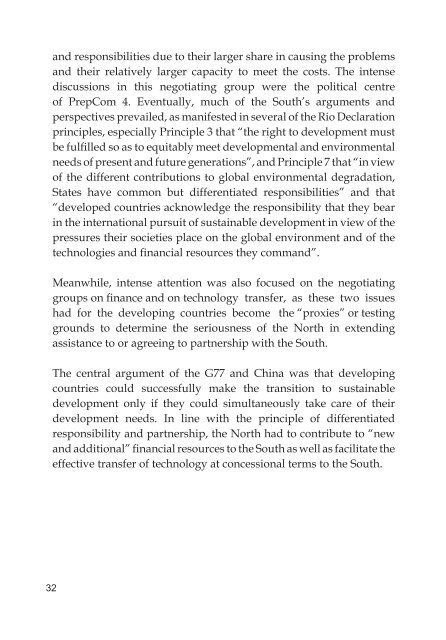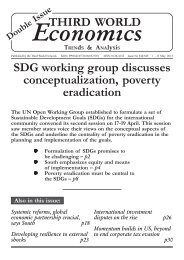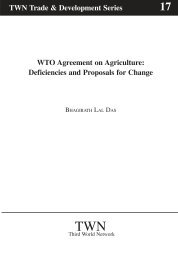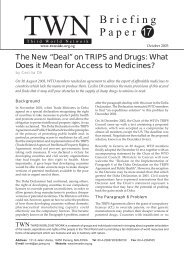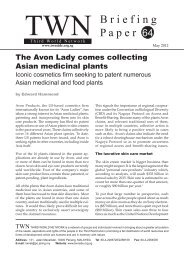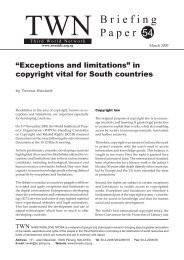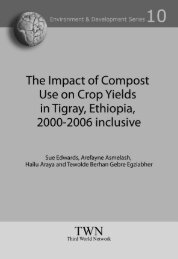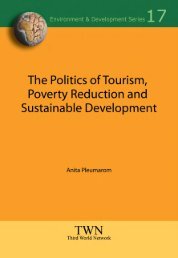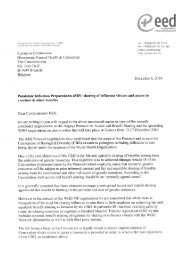Reaffirming the Environment-Development Nexus of UNCED 1992
Reaffirming the Environment-Development Nexus of UNCED 1992
Reaffirming the Environment-Development Nexus of UNCED 1992
Create successful ePaper yourself
Turn your PDF publications into a flip-book with our unique Google optimized e-Paper software.
and responsibilities due to <strong>the</strong>ir larger share in causing <strong>the</strong> problemsand <strong>the</strong>ir relatively larger capacity to meet <strong>the</strong> costs. The intensediscussions in this negotiating group were <strong>the</strong> political centre<strong>of</strong> PrepCom 4. Eventually, much <strong>of</strong> <strong>the</strong> South’s arguments andperspectives prevailed, as manifested in several <strong>of</strong> <strong>the</strong> Rio Declarationprinciples, especially Principle 3 that “<strong>the</strong> right to development mustbe fulfilled so as to equitably meet developmental and environmentalneeds <strong>of</strong> present and future generations”, and Principle 7 that “in view<strong>of</strong> <strong>the</strong> different contributions to global environmental degradation,States have common but differentiated responsibilities” and that“developed countries acknowledge <strong>the</strong> responsibility that <strong>the</strong>y bearin <strong>the</strong> international pursuit <strong>of</strong> sustainable development in view <strong>of</strong> <strong>the</strong>pressures <strong>the</strong>ir societies place on <strong>the</strong> global environment and <strong>of</strong> <strong>the</strong>technologies and financial resources <strong>the</strong>y command”.Meanwhile, intense attention was also focused on <strong>the</strong> negotiatinggroups on finance and on technology transfer, as <strong>the</strong>se two issueshad for <strong>the</strong> developing countries become <strong>the</strong> “proxies” or testinggrounds to determine <strong>the</strong> seriousness <strong>of</strong> <strong>the</strong> North in extendingassistance to or agreeing to partnership with <strong>the</strong> South.The central argument <strong>of</strong> <strong>the</strong> G77 and China was that developingcountries could successfully make <strong>the</strong> transition to sustainabledevelopment only if <strong>the</strong>y could simultaneously take care <strong>of</strong> <strong>the</strong>irdevelopment needs. In line with <strong>the</strong> principle <strong>of</strong> differentiatedresponsibility and partnership, <strong>the</strong> North had to contribute to “newand additional” financial resources to <strong>the</strong> South as well as facilitate <strong>the</strong>effective transfer <strong>of</strong> technology at concessional terms to <strong>the</strong> South.32


